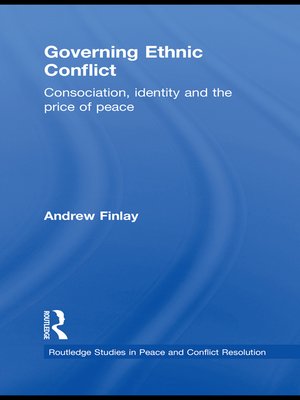Governing Ethnic Conflict
ebook ∣ Consociation, Identity and the Price of Peace · Routledge Studies in Peace and Conflict Resolution
By Andrew Finlay

Sign up to save your library
With an OverDrive account, you can save your favorite libraries for at-a-glance information about availability. Find out more about OverDrive accounts.
Find this title in Libby, the library reading app by OverDrive.



Search for a digital library with this title
Title found at these libraries:
| Library Name | Distance |
|---|---|
| Loading... |
This book offers an intellectual history of an emerging technology of peace and explains how the liberal state has come to endorse illiberal subjects and practices.
The idea that conflicts are problems that have causes and therefore solutions rather than winners and losers has gained momentum since the end of the Cold War, and it has become more common for third party mediators acting in the name of liberal internationalism to promote the resolution of intra-state conflicts. These third-party peace makers appear to share lessons and expertise so that it is possible to speak of an emergent common technology of peace based around a controversial form of power-sharing known as consociation.
In this common technology of peace, the cause of conflict is understood to be competing ethno-national identities and the solution is to recognize these identities, and make them useful to government through power-sharing. Drawing on an analysis of the peace process in Ireland and the Dayton Accords in Bosnia Herzegovina, the book argues that the problem with consociational arrangements is not simply that they institutionalise ethnic division and privilege particular identities or groups, but, more importantly, that they close down the space for other ways of being. By specifying identity categories, consociational regimes create a residual, sink category, designated 'other'. These 'others' not only offer a challenge to prevailing ideas about identity but also stand in reproach to conventional wisdom regarding the management of conflict.
This book will be of much interest to students of conflict resolution, ethnic conflict, identity, and war and conflict studies in general.
Andrew Finlay is Lecturer in Sociology at Trinity College Dublin.







